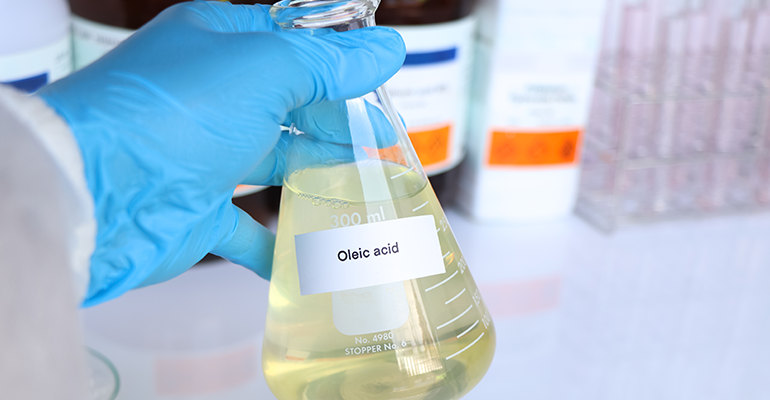News
Canada approves use of GM-modified high oleic algae oils for food use
28 Mar 2023
The government of Canada has approved the use of high oleic algae oils designed to replace certain dietary fats and oils in conventional foods.
The approved application was for two high oleic algae oils (HOAOs) derived from two genetically modified Prototheca moriformis strains, S2532 and S6697, using recombinant-DNA techniques.
“The review of the information presented in support of the food use of high oleic algae oil S2532 and S6697 does not raise concerns related to food safety,” according to Health Canada.

“Health Canada is of the opinion that food containing HOAOs derived from P. moriformis strains S2532 and S6697 is as safe and nutritious as food containing other oils used in Canada.”
The approval marks a pivotal moment for the country’s use of HOAOs in foods, following the US Food and Drug Administration’s (FDA) notification of Generally Recognized as Safe (GRAS) status given to the S2532 oil and its makers Terra Via (now owned by Corbion), back in 2017.
The high-stability, high-oleic oils have slightly different fatty acid profiles, which required two separate novel food data submissions that were assessed simultaneously by Health Canada.
Nutritional qualities of HOAOs present a healthy option
The assessment found oleic acid to be the predominant fatty acid in HOAO derived from strains S2532 and S6697 with mean levels of 86.61% and 88.27%, respectively.
The next two most abundant fatty acids in HOAO were palmitic acid and stearic acid -two saturated fatty acids (SFAs).
Health Canada recorded palmitic acid mean levels of 8.11% and 3.54%, while stearic acid levels of 1.55% and 3.67% in HOAO from strains S2532 and S6697, respectively.
The department commented that, “intakes of SFAs should be minimised due to a positive linear trend between SFA intake and total and low-density lipoprotein (LDL) cholesterol levels and an increased risk of coronary heart disease.
“The levels of palmitic acid and stearic acid in HOAO are similar to or less than the levels found in olive, canola, or soybean oil. Therefore, the level of SFAs found in HOAO does not pose nutritional concerns.”
HOAO and its proven cardiovascular health benefits
Along with high oleic sunflower oil, canola oil, and soybean oil, HOAOs are able to make the link to their consumption and a range of cardiovascular benefits when these edible oils replace saturated fat.
The FDA said in 2018, it would allow the claim on pack that: “Supportive but not conclusive scientific evidence suggests that daily consumption of about 1½ tablespoons (20g) of oils containing high levels of oleic acid [at least 70%], may reduce the risk of coronary heart disease.”
Food manufacturers would need to make it obvious that these oils, “should replace fats and oils higher in saturated fat and not increase the total number of calories you eat in a day,’ to achieve this benefit”.
 © AdobeStock/kittisak
© AdobeStock/kittisak
Labelled on the ingredients list as 'algae oil', it can be used as a food ingredient or a frying oil and has a light colour and neutral flavour allowing the flavour of foods to come through.
Lower intakes of LA and ALA in the Canadian population
In further assessment details, Health Canada said the dietary replacement of vegetable oils containing higher levels of linoleic acid (LA) and alpha-linolenic (ALA) with HOAO could potentially lead to lower intakes of these essential fatty acids in the Canadian population.
However, they added that a significant shift of the intakes of LA and ALA was unlikely given the highly conservative daily intake (EDI) of 0.6 and 1.06 g HOAO/day, respectively, for the mean and 90th percentile in all populations.
A previous assessment of HOAOs by Health Canada stated the oil did not pose a greater risk to human health than oils currently available on the Canadian market.
In addition, Health Canada also concluded that this oil would have no impact on allergies, and that there were no differences in the nutritional value of the high oleic algae oil compared to other oils available for consumption.
Functionality: Great potential for deep-frying
Evidence of HOAO’s versatility came in a comparative study of the oil with other vegetable oils that revealed algal oil had the highest physical and chemical stability during the frying process compared to sunflower and palm oils.
Potato sticks fried in algal oil had a superior texture and improved sensorial properties, according to the research team, which concluded that algal oil had a great potential to be used for deep frying foods.
